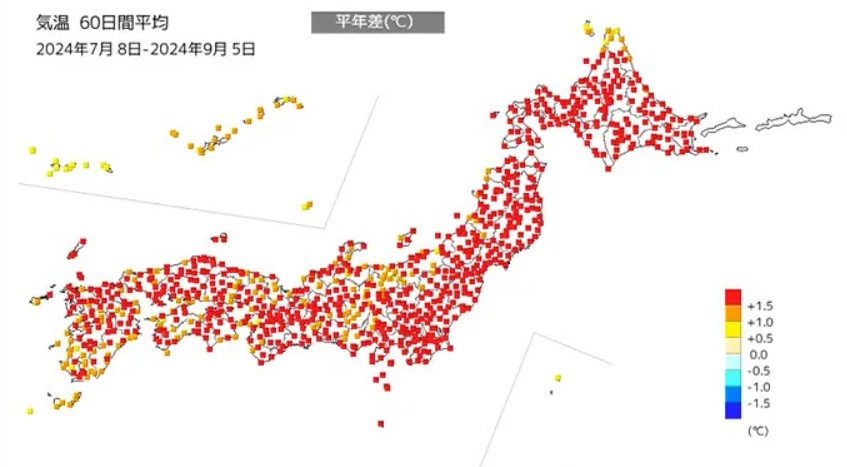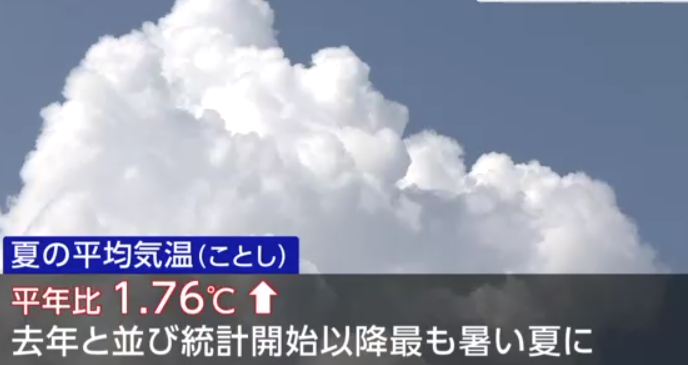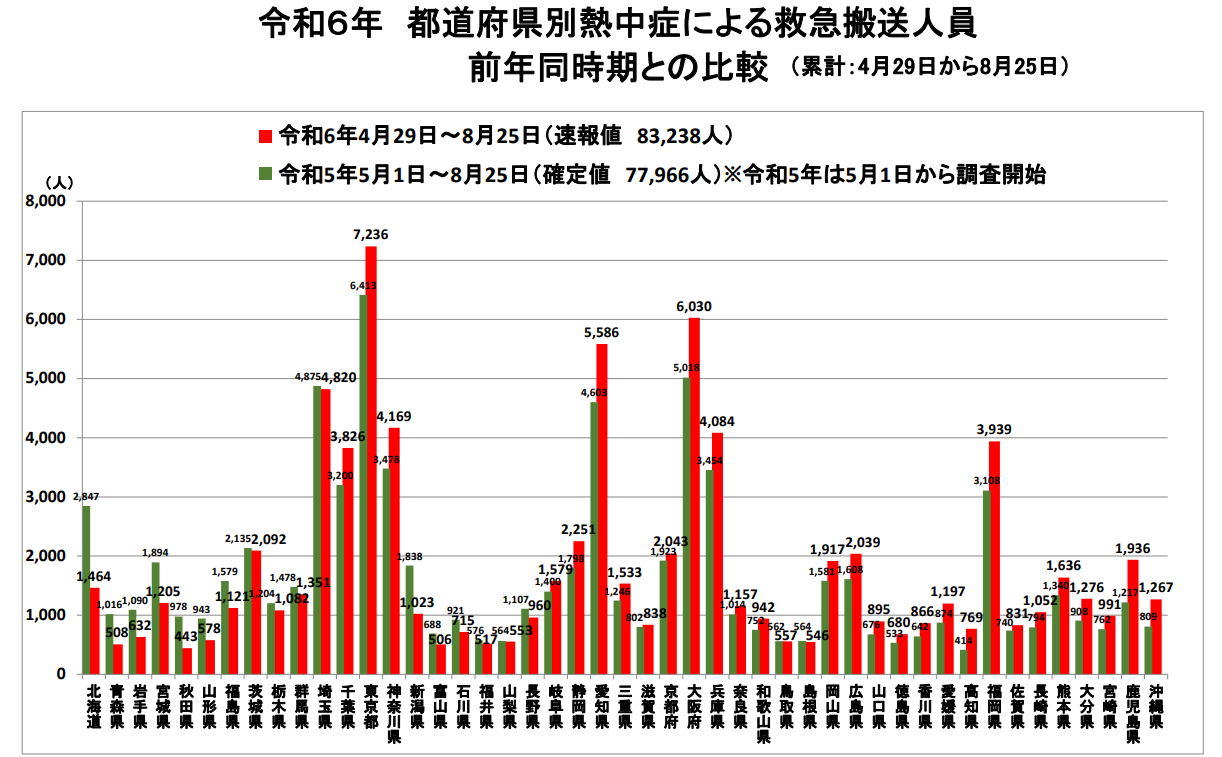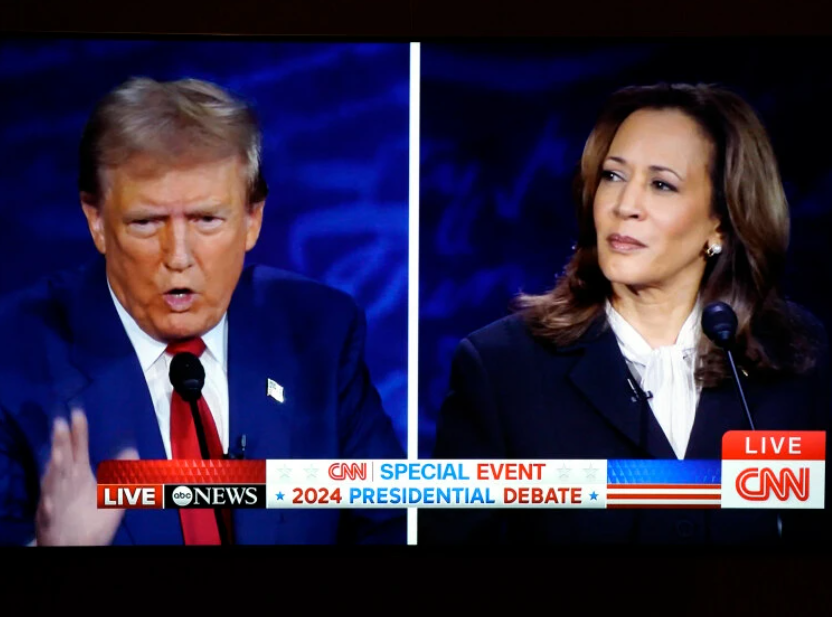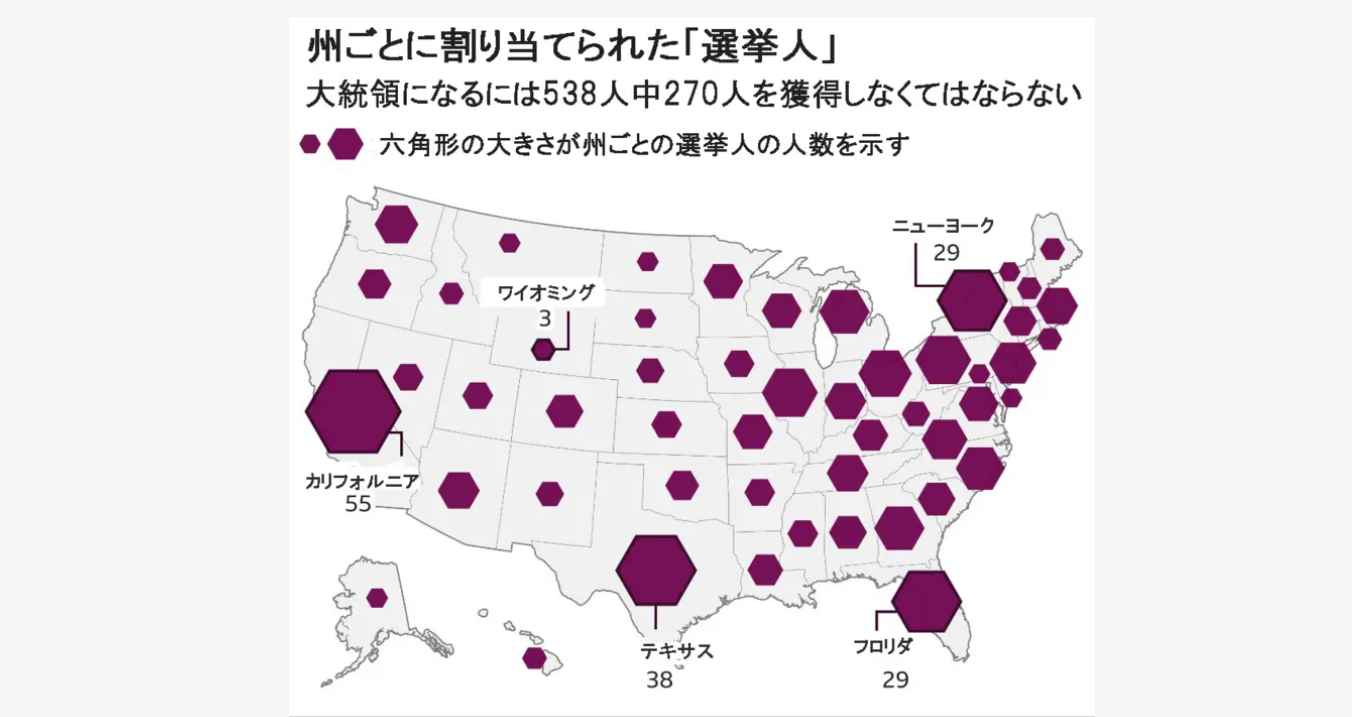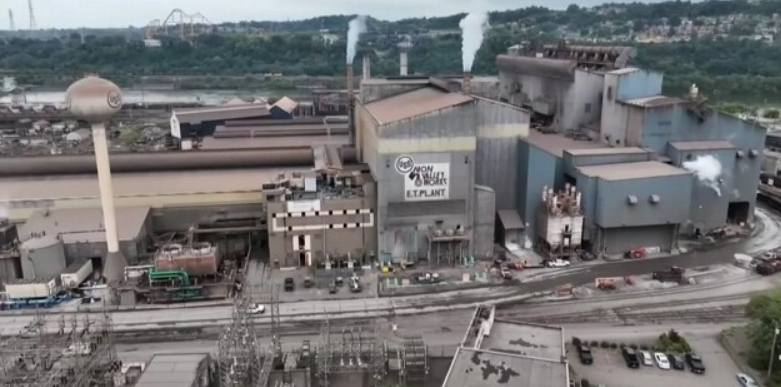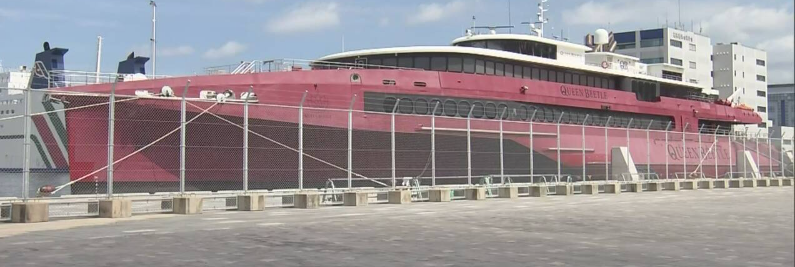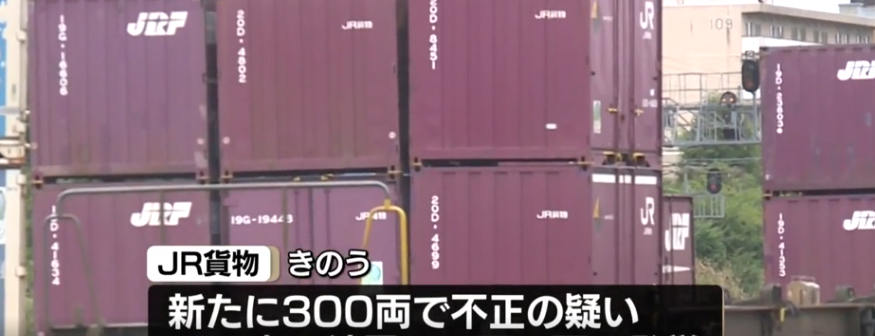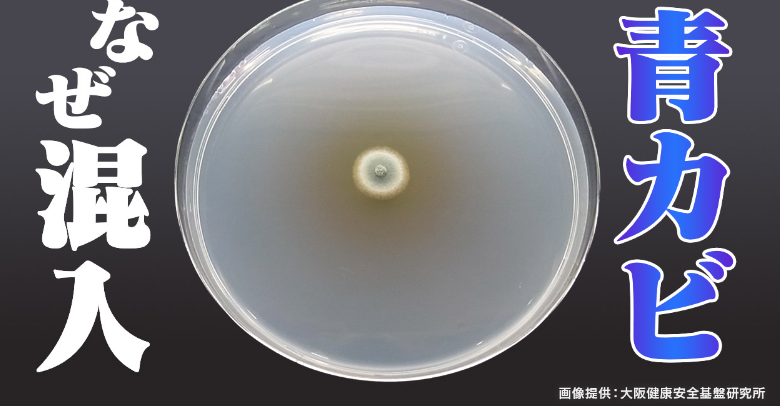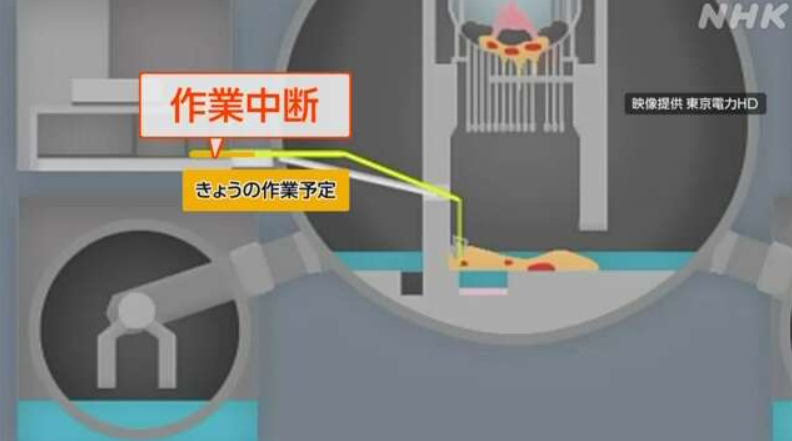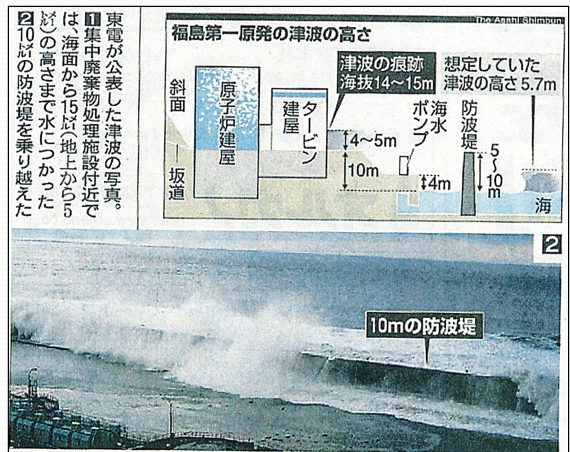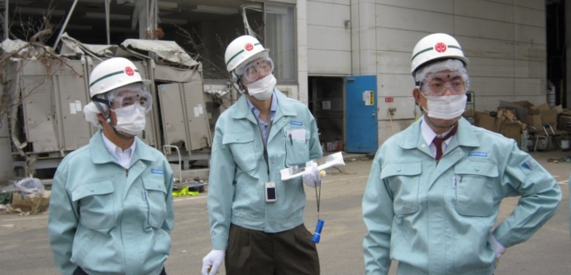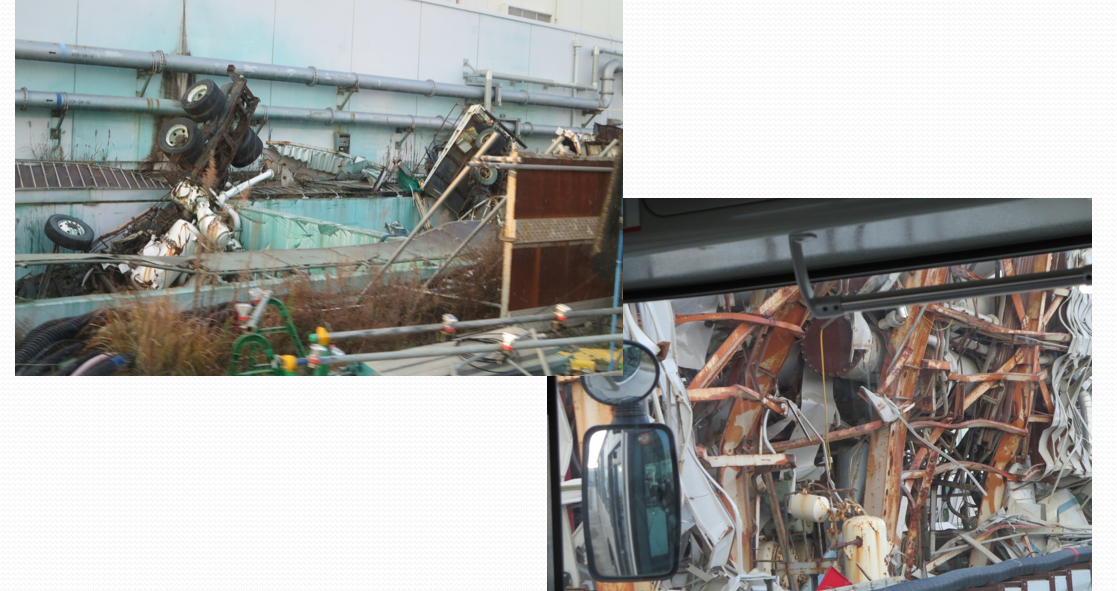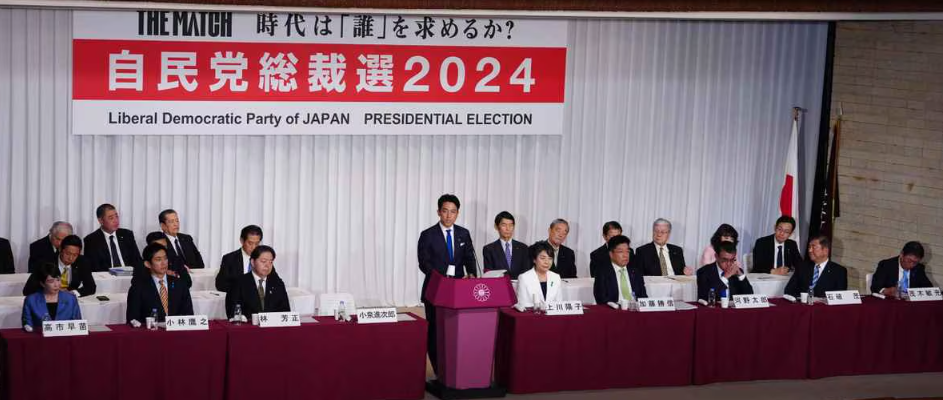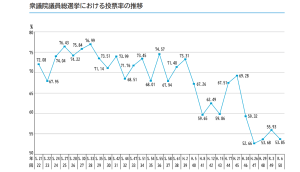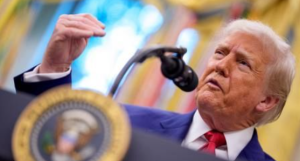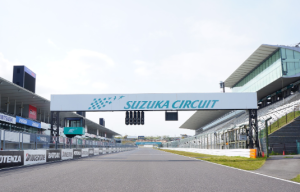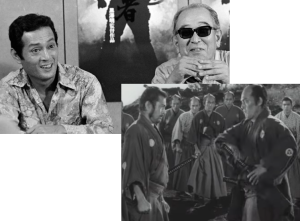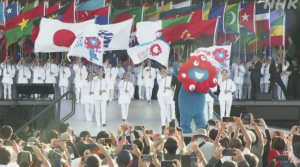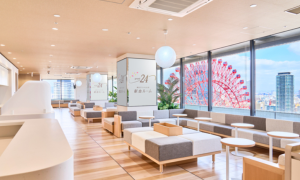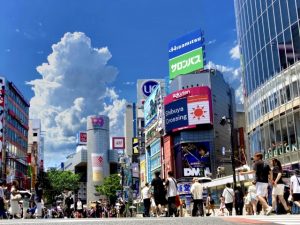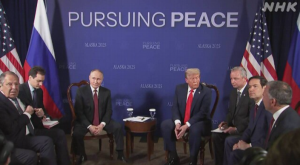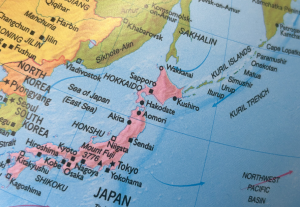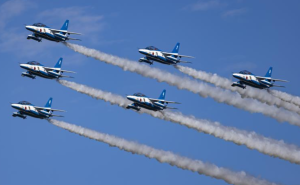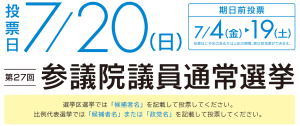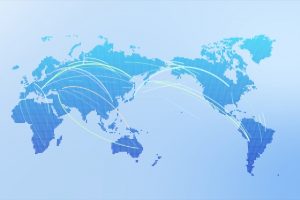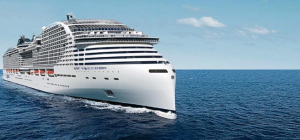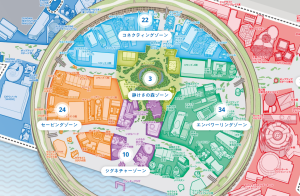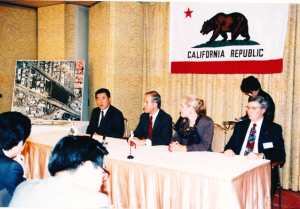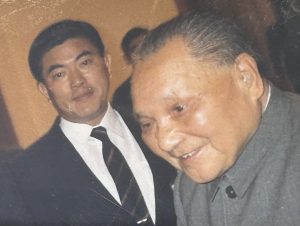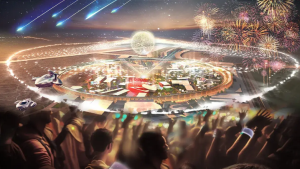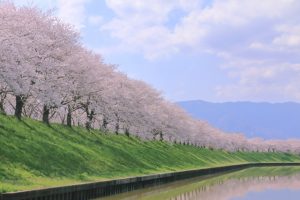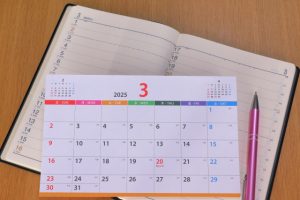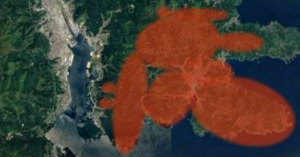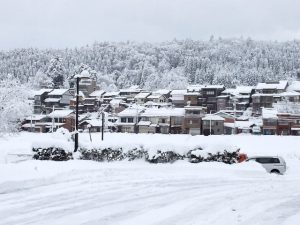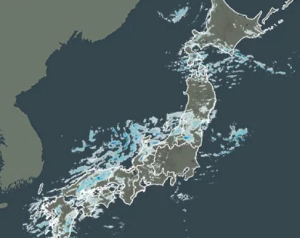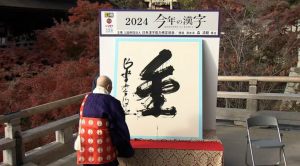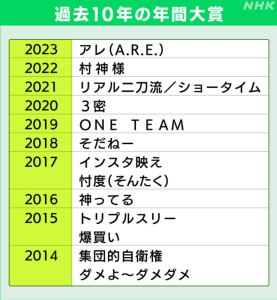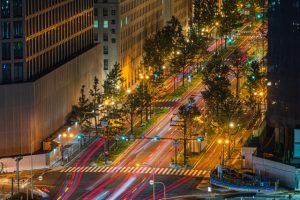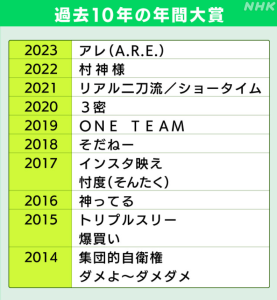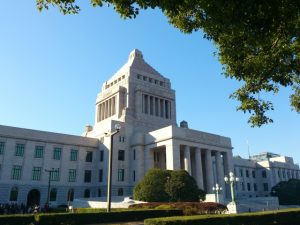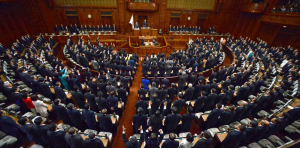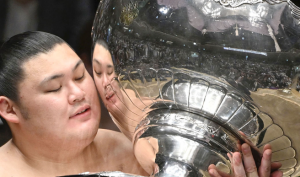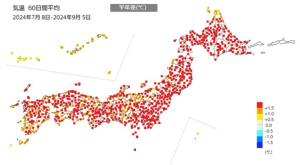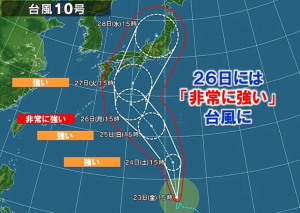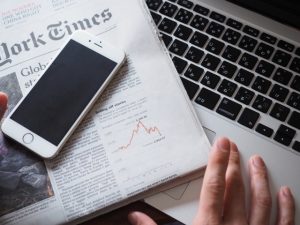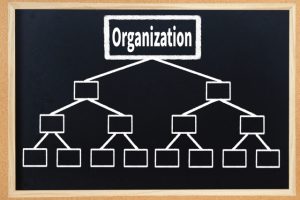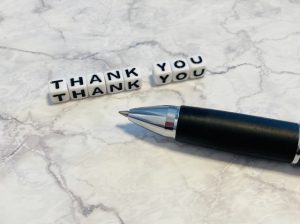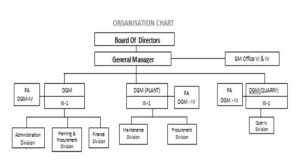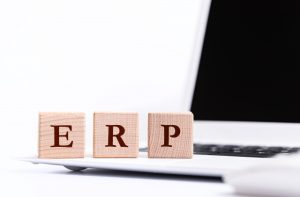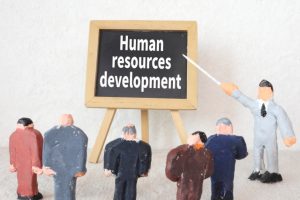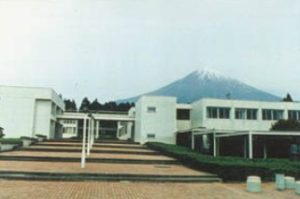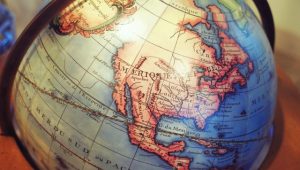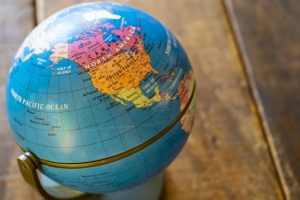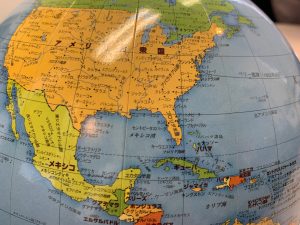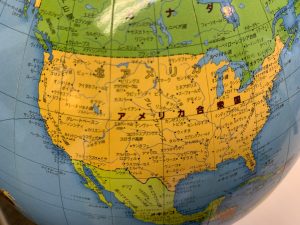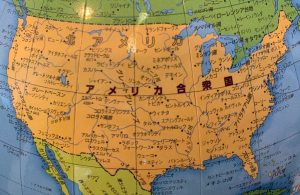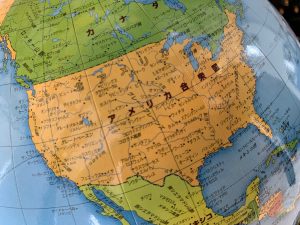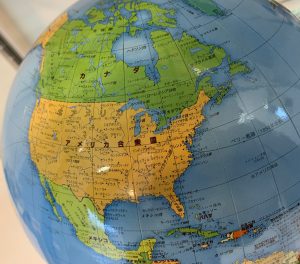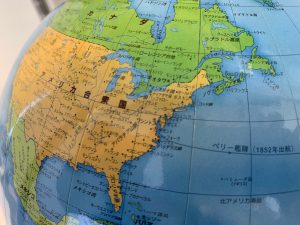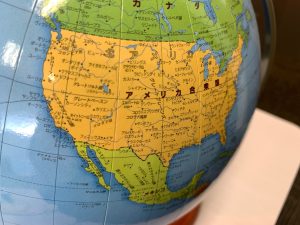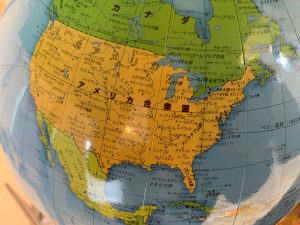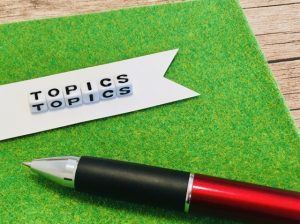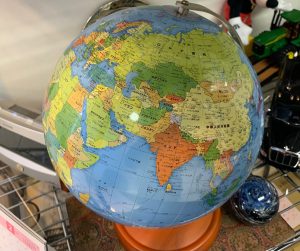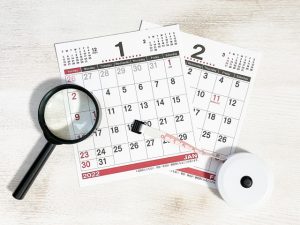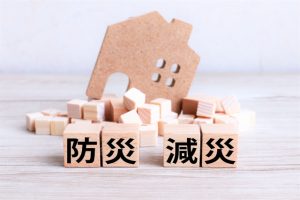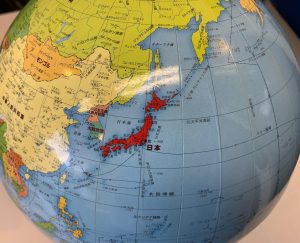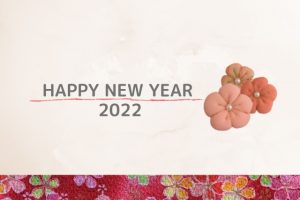Re: A news item and subject which I just want to check out (151) September 13, 2024
The Meteorological Agency announced on September 2 that national average temperature this summer (from June to August) was 1.76 degrees higher than normal and the hottest statistic since 1898, in line with last year when it was hottest. It says that even in September, the heat wave continues and caution against heat stroke remains necessary. As a background, it is pointed out that in addition to long-term global warming, due to meandering of westerlies, mainly western Japan was covered by high pressure and fine weather continued. Especially, maximum temperature of more than 40 degrees was recorded at 9 spots across the country in July and August. And average temperature in July was 2.16 degrees higher than normal and higher than record-breaking last year when it was 1.91 degrees higher than normal. These were hot days to realize it physically. In addition. According to announcement of Fire and Disaster Management Agency of the Ministry of Internal Affairs and Communications, the number of people transported by heat stroke across the country has already reached 83,238 by August 25 this year, compared to 40,048 in 2014 (from June onwards). It seems that we can’t afford to let our guard down.
And it is predicted that typhoon intensity will increase and “becoming erratic” is on the rise due to global warming. Especially, it is said that the sea-surface temperature in Northwest Pacific Ocean nearby Japan that seems to be deeply connected to is more than 30 degrees now, even though the average in August had been stable around 28 degrees by 1980s. On the other hand, even in Southeast Asian countries bad weather has continued, and typhoon-fed flooding causes significant human, physical and economic damage in Philippines, Thailand, Vietnam and southern parts in China.
■■What I have recently thought and focused on:
■The results of the first direct TV debate between the presidential candidates in the presidential election of the United States and future:
The first direct TV debate between Vice President Harris, Democratic Party and former President Trump, Republican Party was held in Philadelphia, Pennsylvania about 100 minutes from 9 p.m. on September 10 in local time. It was a wide-ranging debate including economy, domestic politics, foreign policy, immigration and abortion, and an ex post facto opinion poll says on the whole that she won the debate. There are 55 days left to voting day, November 5, and Mr. Trump seems to be shy away from the voice of “debate again”. But the outcome of the election is still in chaos. The current is turning towards Vice President Harris, but even in the presidential election in 2016, beforehand, the expectation that Mrs. Hillary Clinton, Democratic Party would win was dominant. Actually, Mrs. Clinton won over about 2.6 million votes than Mr. Trump. But the United States does not employ the direct election system (total number of votes received), but the candidate who wins the majority (270) of the electors (538 in total) allocated to each state captures the presidency. And introducing “winner-take-all” in 48 states and Washington, D.C. led to Mr. Trump’s victory. The key to this election is 7 states (swing states), namely, Arizona, Georgia, Michigan, Nevada, North Carolina, Pennsylvania and Wisconsin, that swing to either Democratic Party or Republican Party in every election. Therefore, both candidates are desperately aiming for winning the electors in these states.
Incidentally, the head office of U.S. Steel that Nippon Steel is aiming for acquisition now is located at Pittsburgh, Pennsylvania that is one of swing states. And the number of electors in the said state is as high as 19, and they greatly affect the outcome of the election campaign where a narrow margin is expected. And the headquarters of USW (United Steelworkers of America) that has 850,000 union members and is strongly against the acquisition is located at the said city. Therefore, it seems that this acquisition project becomes a political issue in spite of pure private level, and both candidates have to take an “anti-acquisition” position because they can’t ignore the claims of labor union side. It will be interesting to see what happens in the future.
■Successive scandals in large companies and recent examples:
①Following “JR Kyushu Jet Ferry”, subsidiary of JR Kyushu, there was fraud at JR Freight:
JR Kyushu Jet Ferry covered up flooding to a ship in the operation of high-speed vessel connecting between Japan and Korea under the instruction and approval of the president and an unbelievable incident, tampering with records and modification of the alarm sensor, was uncovered. And it seemed to virtually ignore the items pointed out by the Ministry of Land, Infrastructure, Transport and Tourism.
Following this, it became clear this time that JR Freight tampered with the inspection data in the assembly work of “wheel axle” consisting of a wheel and an axle. In spite of putting up a sign of “safety first”, I have to say that in actuality, governance did not work at all. At this rate, it will throw cold water on a modal shift from trucking to railway as a pillar of domestic transport.
②Red yeast rice poisoning incident by Kobayashi Pharmacy:
In the incident that consumers who took supplements including the material of red yeast rice reported serious health damage, a blunder that took two months from the first case grasp to official announcement is planting a negative image of “a company that neglects people’s lives and health”, and the said company is facing significant social sanctions. And similarities in a family-owned company and omission in an emergency have become problems. By the way, among outside directors of the said company, there is a representative figure who talks about corporate governance code in Japan. I would like to ask him again about “difference between theory and practice” and “role of outside director”. And there are outside directors who work at plural companies in the world, but from my own experience, up to two companies is the limit. The company side does not choose someone “just because the company or the person is well-known”, but “substantive quality and role” should be the measure, based on as precise as possible job matrix (job experience and character evaluation).
③The postponement of taking debris (melted down nuclear fuel)of Fukushima Daiichi Nuclear Power Plant Unit 2 out on a trial basis:
In the initial plan, the work is supposed to start on August 22, but the reason for the postponement is that the order in which the cable was passed through 5 pipes that push the device taking fuel debris out into reactor container was wrong. And I think the essence of the problem is that who discovered this mistake was not employees of Tokyo Electric Power, but employees of partner company (subcontractor).
I visited the site of Fukushima Daiichi Nuclear Power Plant in December 2013. Unit 1~4 among six nuclear reactors in the said power plant were installed at 10m above sea level and received a direct hit from the tsunami (Unit 5 and 6 were installed at 13m above sea level). On top of that, generators for the core cooling were installed at the same height and then was flooded and it was unable to cool down due to losing their power. I think there was accident response manual as a matter of course, but it seemed that the power plant left on-site work to the partner company and I heard that emergency response such as generator operation and so on took a lot of time. The same is true for large factories in other industries, and employees of the ordering company don’t throw on-site work to a subcontractor, but should be familiar with the bottom line. It should not be assumed that “a tsunami exceeding 5 meters is not conceivable” or “there is no such thing as a power outage”, and they should manage based on the assumption of “expecting the unexpected”. The usage of nuclear energy is essential for the existence of our country, but on the other hand, there is a deep-rooted trauma in Japan that suffered atomic bombings. Therefore, we need to be cautious on top of being cautious.
Incidentally, in mass food poisoning incident of Snow Brand occurred in June and July 2000, the president who was asked about the details of the site was at a loss for an answer at a press conference, and made a slip of the tongue that “I have not been sleeping”. This had led to fierce criticism and his subsequent resignation.
◎Other than above, there are many large companies that caused various scandals and committed non-compliance. However, there have been cases of some top managements remaining in public office even after that. I wonder if top management that the governance of the company and the organization is not sufficiently fulfilled remains in public position by the power of the brand as a matter of course and talks about crisis management issues.
■The Liberal Democratic Party’s presidential election:
It was notified on September 12 (Thursday), and record high 9 candidates including 2 female candidates have run for the election. It is said that too many candidates are running for the election, because former Prime Minister Abe passed away and due to the Unification Church issue and political funding scandal, most of the factions disbanded and leading members of Abe faction disappeared from the stage. What is going to happen in runoff voting on September 27 (Friday)? Do they have “resourcefulness” that can compete with leaders such as Xi Jinping, President of the United States and so on? Can they reform the things of “what is common sense in Japan is nonsense in the world” and engage in diplomacy with a proper global perspective? I want to listen carefully to the debate. But I am more interested in the outcome of the presidential election in the United States rather than presidential elections of ruling and opposition parties in Japan. At the same time, I even envy enthusiasm of American people.
